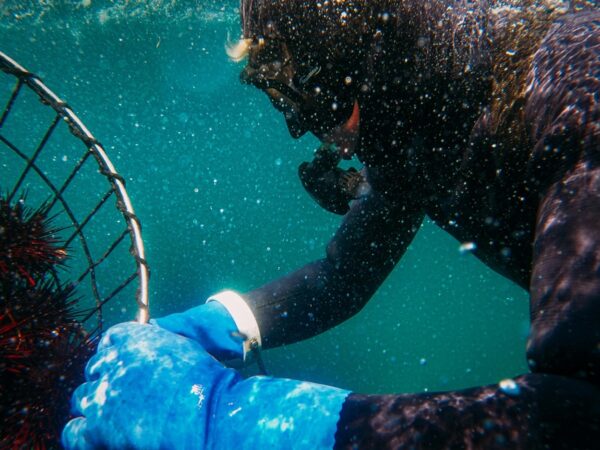The first restorative aquaculture centre in the Mediterranean and the Black Sea will be located in La Rapita, Cataluña, Spain, and is expected to open by the end of 2024. The announcement was presented at the Global Seafood Expo in Barcelona last month.
The innovation and capacity building centre will be in La Rapita, Spain and is the result of the collaboration between the General Fisheries Commission for the Mediterranean of the Food and Agriculture Organization of the United Nations (FAO) and the Generalitat de Catalunya, Departament d’Acció Climàtica, Alimentació i Agenda Rural (DACC). The venture will receive support and infrastructures from the Institute of Agrifood Research and Technology.
Restorative aquaculture
As stated on the FOA’s announcement, restorative aquaculture can cover a diverse range of activities, including the production of algae, sea urchin farming and roe enhancement, bivalve farming, integrated multitrophic aquaculture systems and restocking.
Photo by Kindel Media
The Mediterranean Restorative Aquaculture Centre will focus on the farming of species such as macroalgae, sea urchins, bivalves and holothurians, as well as on integrated multi-trophic aquaculture systems and adaptation to climate change. Furthermore, this initiative will work towards sustainable aquaculture development among producers and interested companies by fostering the exchange of technical guidance, expertise, and experiences among stakeholders in the Mediterranean region. An example of restorative aquaculture activity, already planned for the facility, is macroalgae culture, which is underdeveloped in the Mediterranean. The Centre will assist regenerating the marine environment through the ecosystem benefits it provides, as well as promote the diversification of the aquaculture sector and its adaptation to climate change.
Blue Transformation
Restorative aquaculture supports FAO’s Blue Transformation vision by enhancing aquaculture production while benefiting the environment and society. In 2023, the GFCM adopted a resolution for climate-resilient aquaculture, urging Mediterranean and Black Sea countries to develop a regional climate adaptation plan. Restorative practices help regenerate aquatic ecosystems, adapt to climate change, and mitigate environmental impacts, enhancing the resilience of farmed species. Additionally, these practices offer local communities employment, income, and improved food security, contributing to UN Sustainable Development Goals, especially SDG 14 (Life Below Water), SDG 8 (Decent Work and Economic Growth), and SDG 2 (Zero Hunger).
“We are honoured to host the Mediterranean Restorative Aquaculture Centre, given the commitment of the Generalitat de Catalunya to promote the sustainable development of aquaculture and the strengthening of ecosystem services in the Mediterranean”, said Sergi Tudela, Director General of the Direcció General de Política Marítima i Pesca Sostenible at DACC. “The opening of Mediterranean Restorative Aquaculture Centre as an innovation and capacity-building centre is a very important milestone for our region. Within the framework of the GFCM 2030 Strategy, it aims at increasing and sharing knowledge on aquaculture resilience in the face of climate change,” added Miguel Bernal, GFCM Executive secretary.
